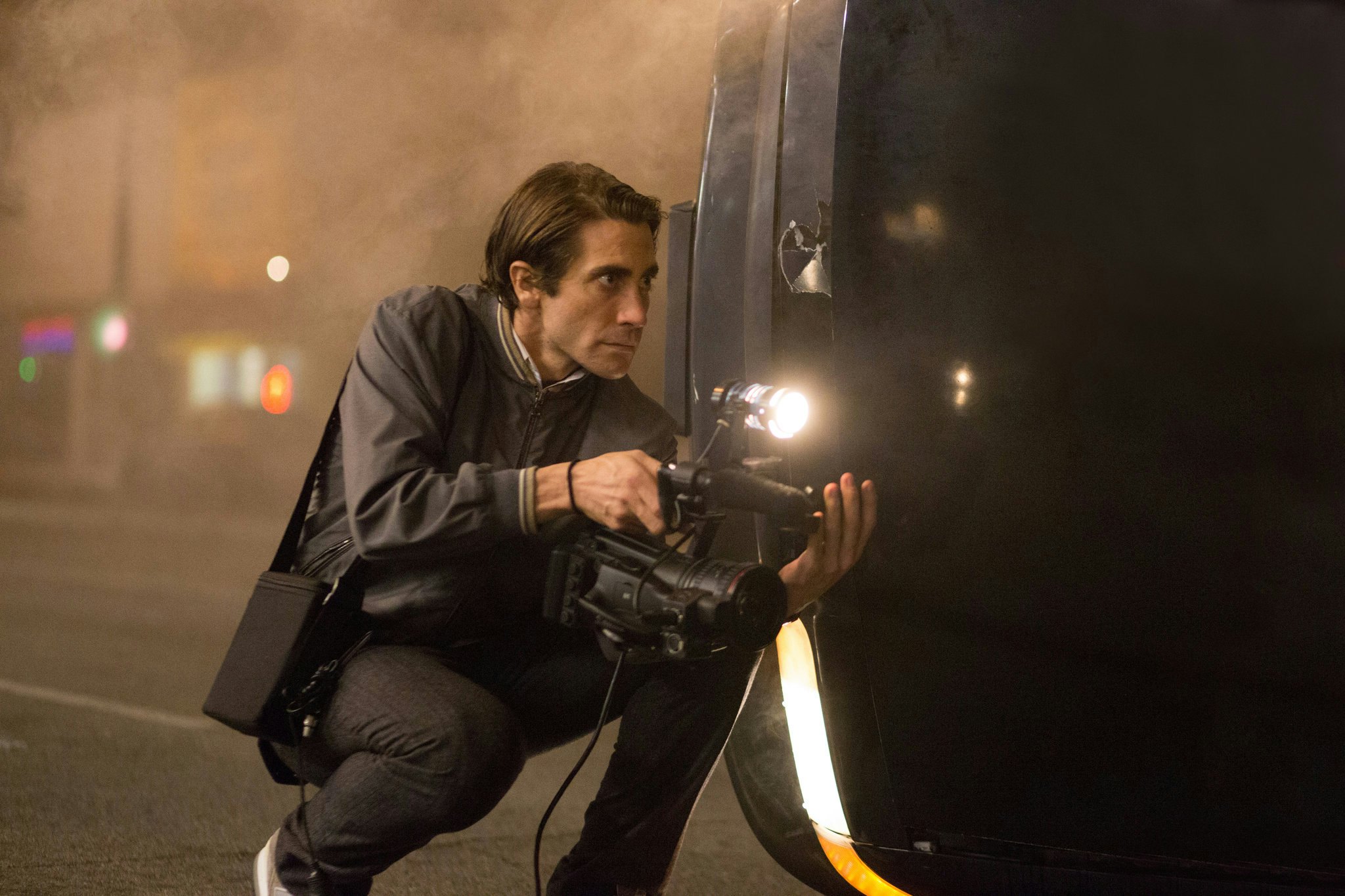
2014 was the year modern true crime culture really kicked off. Serial, the smash hit podcast focused on a potentially innocent man’s trial, debuted in October and set the scene for what would practically become an American pastime a decade later. Knowing this, it feels like prescient serendipity that Dan Gilroy’s directorial debut, Nightcrawler, arrived the same month, on October 31, 2014. The film’s palpable neo-noir landscape is thick with foreboding vibes, but it’s downright horrifying when you realize it's indicting us in the overconsumption of extreme tragedy.
In fact, it starts to feel less like noir and more like horror, and it’s all thanks to Jake Gyllenhaal as Lou Bloom. It’s easy to temper our terror of the supernatural; we have no proof of it, so effectively, it doesn’t exist. A man without empathy, however, isn’t so easy to shake off. Enter Lou, a wayward conman and petty thief who finds a twisted talent and pride in nightcrawling, late-night video journalism covering Los Angeles’ gruesome crimes, and plans to make as much money from it as possible.
It’s quickly made clear that Lou has a screw loose. He always tries to appear relatable, but instead just comes off, well, off. He gives bizarre, pseudo-motivational speeches that feel like he lifted them from movies he’s seen. He objectifies and manipulates the people he’s forced into his life to further his goals, like Rene Russo’s Nina, the morning director at KWLA 6 who buys his tapes, and Riz Ahmed’s Rick, a desperate homeless man he brings on as an intern. He steals and brutalizes at a whim. He rearranges bodies at crime scenes to make his shots juicier. He moves like an alien, trying to fit into society while wearing human skin.
He’s an unpredictable person who would be terrifying to have in your life in any capacity, and it’s precisely because of his lack of empathy. His bizarre qualities would be forgivable if he was just an eccentric guy, but Lou is a crude copy of an upstanding person smushed together like Play-Doh, then propped up in front of us. He’s the best version of normal he can muster, but all it does is make your blood run cold. Who says stuff like, “A friend is a gift you give yourself”?
But that’s how Lou sees his peers, as playthings that can either serve his ends or be disposed of. All he cares about in life is his own success, with the morality of how he gets there completely inconsequential in his eyes. So, in turn, are the people he wrongs in the process. Even the score reasserts this perverse nightmare. James Howard Norton’s compositions are triumphant and uplifting, reframing Lou’s hideous actions into the moments of victory he sees them as.

It’s harrowing to be inside Lou’s mind and experience the world the way he does because he’d rather watch it seize and stop for his own good than remain connected to it. And, no matter how sick his methods get, Lou does what he does for us. He makes and sells his gruesome tapes because there’s demand for them.
There is, in fact, quite a high price for exploiting people’s tragic circumstances, and that’s only because we’re willing to watch. An indictment of our desensitization to bloodshed, and a visionary prediction of where our rabid true crime consumption would lead us, the unnerving and impeccable Nightcrawler gives us an anti-hero who’s gleefully prepared to give up anyone to the slaughter for his own gain. If that doesn’t scream horror, not much else does.







